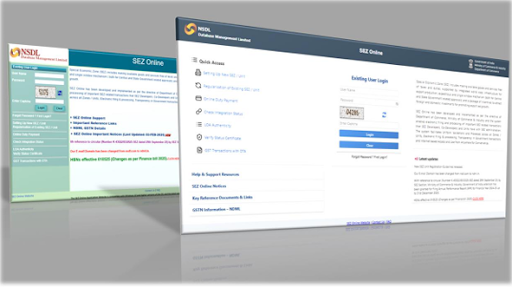Understanding Financial Opportunities in Emerging Economic Zones
- GIFT CFO
- Jun 2
- 5 min read
Economic zones play a crucial role in fostering development and investment in various countries around the world. These zones are designed to attract businesses, encourage entrepreneurship, and stimulate economic growth. Understanding the financial opportunities that emerge from these zones can open doors for investors and entrepreneurs alike, as they navigate a landscape rich with potential.
What Are Economic Zones?
Economic zones, also known as special economic zones (SEZs), are designated areas within a country where business and trade laws differ from the rest of the country. The primary aim of these zones is to attract foreign direct investment (FDI) by offering favorable conditions such as tax incentives, regulatory exemptions, and streamlined processes. Countries like China, India, and the Philippines have established robust economic zones that have led to significant investment and economic transformation.
The characteristics of economic zones include:
Tax incentives: Reduced tax rates or tax holidays to attract businesses
Regulatory flexibility: Looser regulations compared to the national framework
Infrastructure support: Improved transportation, utilities, and communication facilities
Access to labor: Availability of a skilled workforce

These advantages create a conducive environment for both local and international businesses to thrive.
Benefits of Investing in Emerging Economic Zones
Emerging economic zones provide several benefits for investors looking to maximize their returns and enjoy business growth. Here are a few of the key advantages:
1. Access to New Markets
Emerging economic zones often serve as gateways to new markets. Establishing a presence in these zones allows businesses to tap into local demand and expand their customer base. For instance, investing in a zone in Southeast Asia presents doors for companies to reach rapidly-growing populations and economies.
2. Competitive Labor Costs
Many emerging economic zones boast lower labor costs compared to developed countries. This not only allows businesses to maximize profit margins but also facilitates cost-effective production. For example, sectors like manufacturing and assembly find great advantages in such zones, mitigating wage pressures often faced in more developed markets.
3. Government Support and Incentives
Governments often design policies to incentivize businesses to invest in economic zones. These incentives can include reduced corporate tax rates, customs duty exemptions, and enhanced access to financial services. For example, gift city services provide tailored financial services and support for businesses establishing themselves in growing economic zones.

This active government involvement serves as a buffer to investors against some of the risks associated with operating in foreign markets.
Key Economic Zones Around the World
Several countries have capitalized on the benefits of economic zones. Here are some notable examples:
1. Shenzhen Economic Zone, China
Established in 1980, the Shenzhen Economic Zone transformed from a fishing village into a bustling metropolis and technological hub in just a few decades. With a unique combination of policies that include tax breaks and regulatory leniency, it has attracted many multinational companies. The success of Shenzhen emphasizes how effective economic zones can create wealth and development.
2. Dubai Free Zones, UAE
The Dubai Free Zones offer various options for businesses in industries ranging from technology to logistics. These zones are designed for 100% foreign ownership and provide easy access to global markets. In the last decade, Dubai Free Zones have vastly contributed to the UAE's GDP and have placed it on the global business map.
3. Lekki Free Trade Zone, Nigeria
The Lekki Free Trade Zone is an emerging economic zone that aims to attract investment for manufacturing and services. With proximity to Nigeria’s largest port, the zone offers logistics advantages and promises long-term economic benefits. The ongoing development projects in this area signify a commitment to facilitating investments and creating jobs.

Challenges Faced in Emerging Economic Zones
While the advantages are alluring, it is essential to recognize the challenges that investors may encounter in these emerging economic zones:
1. Political and Economic Instability
Emerging economies can face political uncertainty and economic fluctuations. Investors in these areas may worry about changes in leadership or trade policies that could impact their investments. Conducting thorough research and risk assessments is critical before committing.
2. Infrastructure Limitations
While many economic zones promise improved infrastructure, some may still experience issues related to transport, utilities, and communication networks. Businesses must evaluate the infrastructural capabilities in these zones to ensure successful operations.
3. Regulatory Complications
Despite the intended regulatory flexibility, some economic zones can be marred by bureaucratic delays and complexity that undermine the streamlined process investors seek. Engaging with legal advisors familiar with local laws can assist in navigating these challenges.
How to Identify Lucrative Opportunities in Economic Zones
For investors and entrepreneurs looking to leverage financial opportunities in emerging economic zones, it is important to take a structured approach:
1. Research and Analysis
Conduct comprehensive market research to understand the economic landscape, local government policies, and sector-specific opportunities. Data-driven analysis can help identify sectors that are seeing growth within these zones.
2. Networking and Partnerships
Building relationships with local governments, business associations, and industry players can provide insights and potential partnerships for your venture. Networking can also expose investors to opportunities that may not be easily accessible otherwise.
3. Sustainable Practices
Investing in sustainable practices not only aligns with global trends but can also yield financial benefits in terms of reduced operational costs and improved brand reputation. Emphasizing sustainability can set businesses apart in competitive emerging economic zones.
4. Monitoring Trends
Keeping track of global economic trends and shifts in consumer behavior can help investors pivot and adapt to changes. Economic zones can be dynamic environments, so ongoing assessments are vital.
Inspiring Case Studies
To illustrate successful investing in emerging economic zones, consider the following case studies:
1. Foxconn's Expansion in India
Foxconn, a major manufacturer for Apple, chose to set up a facility in an emerging economic zone in India. Leveraging the benefits of tax incentives and government support, the company was able to enhance local employment while contributing to national growth.
2. Amazon in Malaysia
Amazon established a fulfillment center in Malaysia’s economic zone to better serve customers in Southeast Asia. This move not only generated local jobs but also contributed significantly to the local economy and highlighted the importance of logistics in e-commerce.
By learning from these examples, potential investors can understand the strategies that work in emerging zones.

Exploring Future Trends in Economic Zones
The future of economic zones looks promising as globalization and trade continue to evolve. Some key trends include:
1. Technology and Digitalization
Emerging economic zones are increasingly embracing technology. From automation in manufacturing to digital transformation in logistics, businesses that adapt to technological advances can gain a competitive edge.
2. Green Economic Zones
There's a rising focus on sustainability, leading many economic zones to promote green practices. Investments in renewable energy, eco-friendly infrastructure, and sustainable manufacturing processes can attract businesses looking to innovate responsibly.
3. Resilience and Adaptability
The COVID-19 pandemic highlighted the need for adaptability. Economic zones that can pivot quickly in response to global challenges are likely to be more appealing to investors.
By staying attuned to these trends, potential investors can position themselves advantageously within the evolving landscape of economic zones.
Navigating Your Path Forward
Investing in emerging economic zones offers significant financial opportunities, but navigating this terrain requires careful planning and insight. By understanding the advantages, challenges, and strategies for success, investors can effectively harness the potential that these zones present.
As you explore your options, remember to conduct thorough research and engage with local stakeholders for the best insights. With the right approach, the financial opportunities within emerging economic zones can be both fruitful and rewarding.


























































































Comments